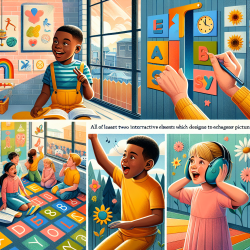As the world continues to adapt to the new normal brought on by the COVID-19 pandemic, online therapy has emerged as a critical tool for supporting children and families. However, transitioning from in-person sessions to virtual ones has presented unique challenges. The research article "Het beeldscherm als blikverruimer: een speelse respons op de uitdagingen van online therapie voor kinderen en gezinnen" provides valuable insights into how playful approaches can enhance the effectiveness of online therapy.
Here are some key takeaways from the research and practical tips for implementing them in your online therapy sessions:
- Embrace Playfulness: Playfulness can lead to curiosity, liveliness, and engagement. Incorporate playful elements such as games, storytelling, and creative activities to make sessions more interactive and enjoyable for children.
- Maintain a Broad Systemic Perspective: Involve figures from the child's real and imaginary network to counteract the risk of reductionism. This helps in creating new relational patterns and enhancing the therapeutic process.
- Use Visual and Tangible Objects: Encourage children to use colored papers, toys, or drawings to express their feelings and experiences. This can make the sessions more dynamic and less verbal, which is particularly beneficial for younger children.
- Establish a Safe and Comfortable Environment: Ensure that the child is in a safe and comfortable space during the session. Use the whiteboard function or ask them to draw a map of their house to identify their favorite spots and safe zones.
- Build a Support Network: Create a team of supporters, including family members, friends, or even imaginary characters, to participate in the sessions. This can provide additional emotional support and make the child feel more connected.
- Document and Reflect: Use online storage tools to save drawings, stories, and other session materials. This helps in maintaining continuity between sessions and allows the child and family to reflect on their progress.
By integrating these strategies, practitioners can create more engaging and effective online therapy sessions that not only address the challenges but also open up new possibilities for therapeutic growth.
To read the original research paper, please follow this link: Het beeldscherm als blikverruimer: een speelse respons op de uitdagingen van online therapie voor kinderen en gezinnen.










